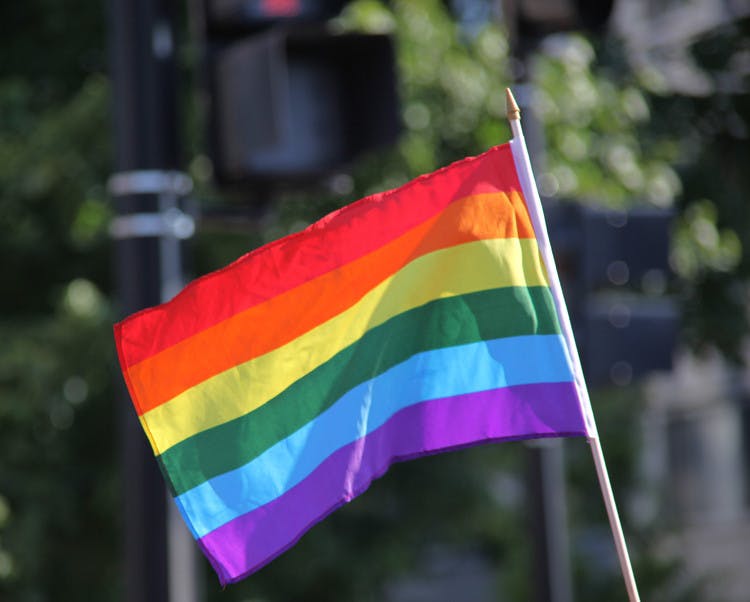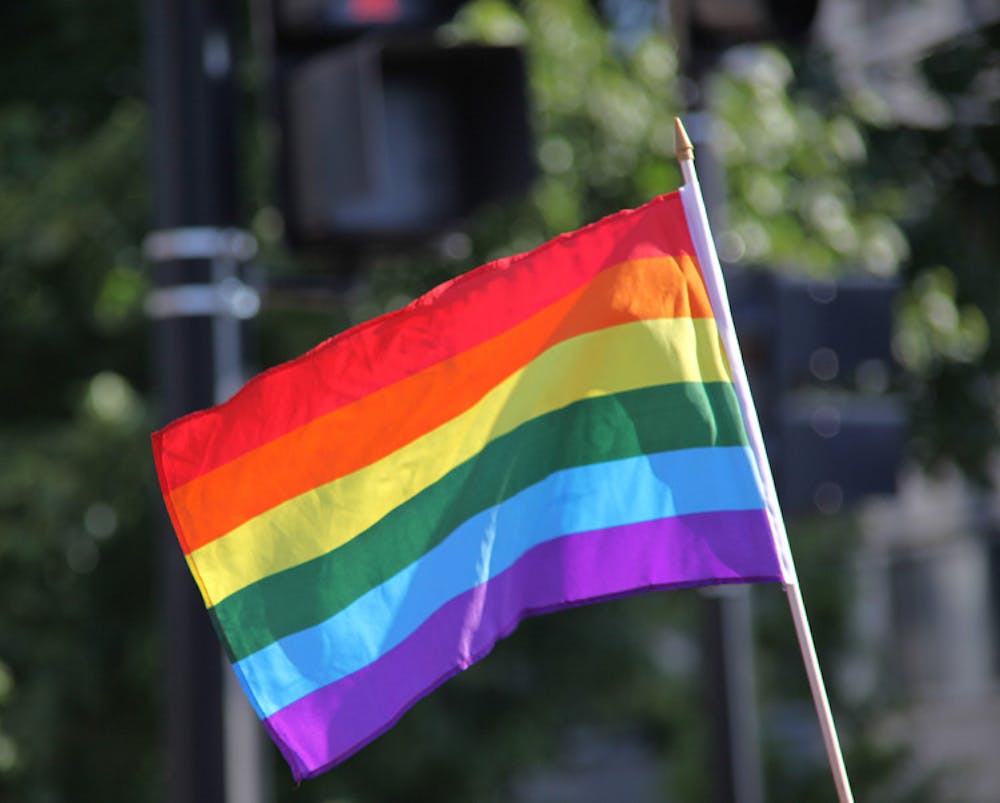Recently, Seton Hall’s gay-straight alliance, PRIDE, formerly known as Allies, gained probationary status from the Student Organization’s Advisory Committee (SOAC). This means that the organization can now present to the Student Government Association’s Finance Committee and request money; they have also been recommended for full recognition to the Department of Student Life.
Probationary status applies to all new clubs during their first year, and after that year is up, new clubs can apply for full recognition, according to Student Government Association (SGA) president, Rishi Shah. SOAC approval can be vetoed by the Department of Student Life if deemed necessary.
Gaining this status, however, has been an uphill battle, according to Adam Varoqua, president of PRIDE. He says that the process was similar to that of every new club that seeks approval on Seton Hall’s campus. They devised a constitution, wrote a mission statement, prepared a presentation for the SOAC committee and had a list of members at the ready. What was different, according to Varoqua, was that PRIDE had to revise their constitution twice in order to gain this probationary status due to concerns from the Board of Regents.

A timeline of the events leading up to having an LGBTQ organization on Seton Hall’s campus was published in The Setonian more than 10 years ago, chronicling letters written by professors, protests organized by students and local media becoming involved. Debates were even held on campus between Freshman Studies and the school’s Debate Team to discuss LGBTQ issues. Lawsuits were filed against Seton Hall for their seeming bias against students within the LGBTQ community.
Shah offered his thoughts on PRIDE gaining probationary status.
“I wholeheartedly believe that approving PRIDE is a step in the right direction for providing students who identify as LGBTQ a voice and a safe space on our campus,” he said “Recognition and providing a platform are essential in creating accepting and inclusive environments. Approving PRIDE is a historic moment for our university.”
PRIDE’s battle to be recognized is not the first time Seton Hall has been at odds with the LGBTQ community.
In 2015, Rev. Warren Hall, the former director of Campus Ministry, was fired due to his outspoken support of the community. In the fall of 2014, Hall had posted a photograph on Facebook after attending an event in New York which condemned bullying of LGBTQ young people. The photo was in support of the “NOH8” campaign, a charity focused on full equality for LGBTQ individuals, according to previous reporting by The Setonian. Several of Hall’s colleagues reported the photograph to university officials who as a result asked Hall to take the photo down, and he complied. Weeks went by before Hall received correspondence from the former archbishop of Newark informing him that he was being removed from his position as director of Campus Ministry, according to The New York Times. A spokesperson for the Archdiocese of Newark said that Hall's termination was unrelated to his support of the LGBTQ community.
A short time later, Hall was interviewed by Outsports.com, where he told his side of the story and said that he was gay. After that story broke, Seton Hall revised its message about his firing, saying that “while sexual orientation did not prohibit service as a priest, Catholic priests were required to live in ‘chaste celibacy’ and to ‘respect and obey the authority of the church,’” also according to The New York Times.
As a result of Hall’s termination, Seton Hall students created the Twitter hashtag #WeWantFatherHall and started a petition urging the University to reinstate him. Students even protested his firing on their graduation caps that year, according to previous reporting by The Setonian.
Dr. Peter Savastano, the faculty advisor for PRIDE and one of Seton Hall’s only openly gay professors, has been working at SHU since 2003 and described the situation surrounding Hall as “very sad.”
“There was a lot of unrest on campus because of the situation,” he said. To him, the reason that was given for Hall’s termination, and the real reason he was let go, were two different things.
Mitchell Swinehart, treasurer of PRIDE, said that the fact that there has never been a recognized LGBTQ group on campus until now “speaks to how poorly Seton Hall has treated its LGBTQ community over the years.”
Swinehart says that beyond a counseling group for LGBTQ students and allowing PRIDE to exist, however, be unrecognized by the Department of Student Life until now, is about as much support for the community he’s seen since being on campus.
“Students within this community had to hope they could find peers and faculty who would be supportive, which might be a roll of the dice,” he said. “It has certainly kept students who are less open and more frightened of backlash from really expressing themselves the way they want to, and this feeling still lingers on to this day.”
Swinehart, who is transgender, says that he has an internal debate every day about which bathroom he should be using and worries he will be harassed if he chooses the wrong one. In his mind, this is a disservice to the LGBTQ community on campus. The student body, on the other hand, he has found to be very accepting, which he finds encouraging.
“There are definite steps being made in the right direction now, even if some of those steps are quite small,” he said.
Varoqua agrees that gaining this status represents a shift in the cultural dialogue of LGBTQ issues here at Seton Hall, saying that “where we [the University] are at this moment has been the result of activism and collectively speaking up against injustice and discrimination.”
Seton Hall announced in early February that Dr. Joseph Nyre, former president of Iona College in New Rochelle, New York, will be taking over as president of Seton Hall in August. Finding a successor to Dr. Mary Meehan, who has served as interim president of the school since the spring of 2017, was a long and arduous process, and naming Nyre was a significant moment for the University. With the tenure of a new president looming, the question of how LGBTQ issues will be handled under Nyre’s leadership arises.
During his time as president of Iona, Nyre was supportive of the school’s own gay-straight alliance Gael Pride. According to Iona’s website, Gael Pride is “a student-run organization with a mission of promoting LGBTQ pride on the Iona College campus.” It’s worth noting that Iona, like Seton Hall, is a private Catholic college, making the question of how involved Nyre will be with LGBTQ issues at SHU even more compelling.
According to Laurie Pine, the director of media relations for Seton Hall, “Nyre will not be conducting any media interviews until he begins his tenure as Seton Hall’s next president on August 1, 2019.”
Swinehart says that he is hopeful that Nyre will be a friend to the LGBTQ community at Seton Hall.
“I have to say that until he becomes president and actually begins any process to help our community, I have to assume that the university will function as it always has," he said.
Swinehart says that PRIDE will attempt to speak with Nyre about the issues LGBTQ students have seen on campus and will “keep their fingers crossed that he will change some things in the future.”
Varoqua echoed Swinehart’s sentiments and said that he recently spoke with the head of Iona’s Gael Pride, and its president said that Nyre has always strived to make Iona a welcoming environment for all. Varoqua says this greatly comforted him to know.
Meehan said that “Nyre understands and embraces the Catholic mission at Seton Hall and I am sure he will bring his passion and commitment to creating an environment where all will flourish.”
Though students and faculty are hopeful, whether or not more will continue to be done to help foster a more inclusive campus environment under Nyre’s leadership remains to be seen.
Isabel Soisson can be reached at isabel.soisson@student.shu.edu. Find her on Twitter @IsabelSoisson.
Adam Varoqua, who is quoted in this article, is a staff writer for The Setonian.





